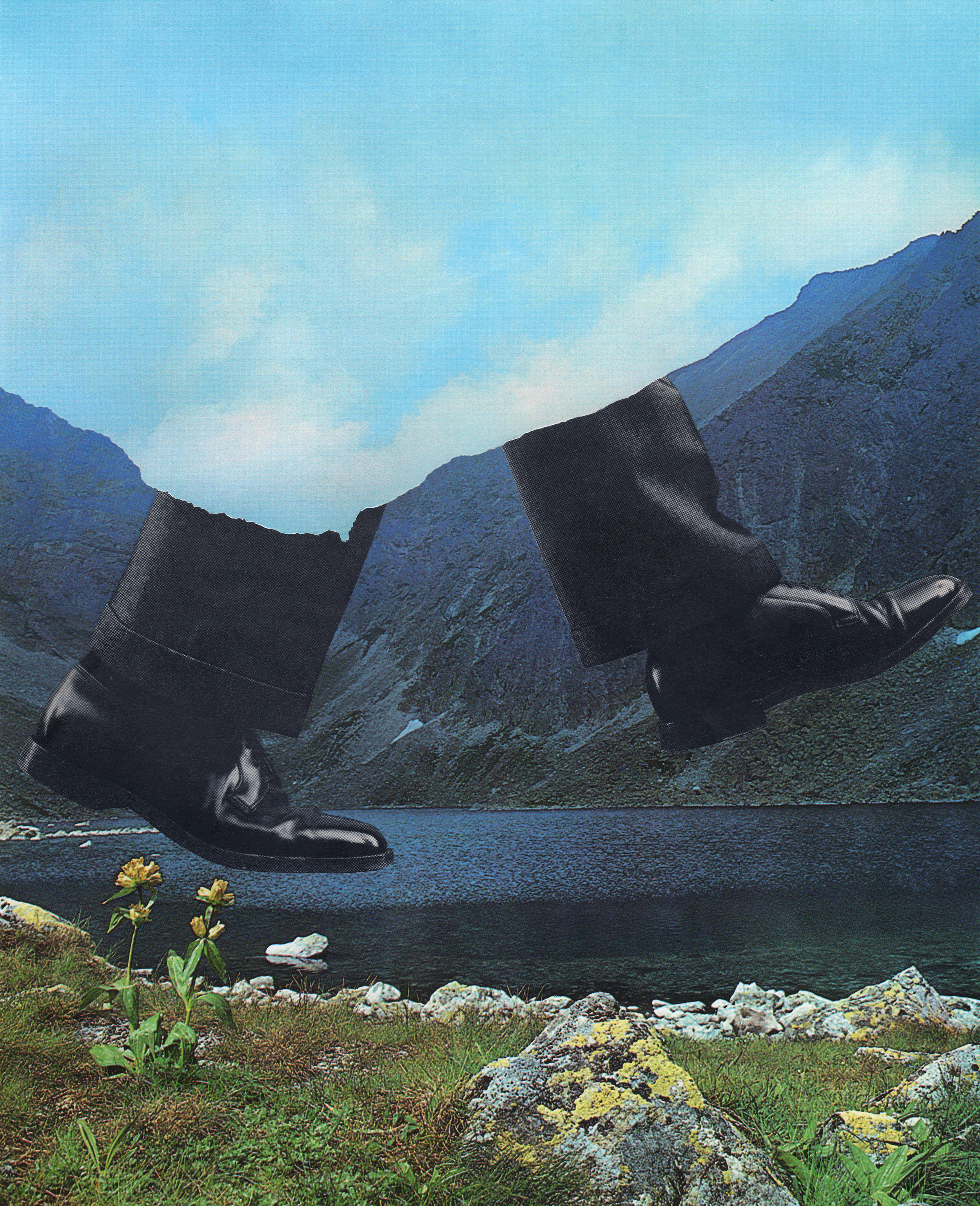nature +/- man
Human beings' recent impact on the natural world and it's life systems is profound. We have altered the chemical composition of the atmosphere, increased the acidity of the oceans, and are ushering in the sixth great extinction ever known on our planet. While our presence in "nature" is undeniable, it doesn't have to continue to be negative.
Most stories of masculinity and of wilderness in modern culture tell us that man is above the natural world, separate from it, controller of it. We see the results of this in history. Native American tribes, for example, were expelled from Yellowstone National Park (and many others) by the United States government to ensure the parks maintained a "natural" and "pure" appearance. Nature was where humans were not. The white men on horses said so. As a result, today we protect around 2% of the lower 48 states land as "wilderness." The other 98% is up for grabs.
By splicing together images of men into images of mountains, waves, clouds, and other icons of the "wild" and "natural" world, I want to expose our present-day interpretation of masculinity, exhibit these connotations in relationship to the natural world, and render this dualism both irrational and comical. Detaching our idea of masculinity from that of controlling or being above or separate from nature will be crucial in addressing our current noxious relationship with it. For man is not above nature. Man is of nature.
08/08/16
...
"This, then, is the central paradox: wilderness embodies a dualistic vision in which the human is entirely outside the natural. If we allow ourselves to believe that nature, to be true, must also be wild, then our very presence in nature represents its fall. The place where we are is the place where nature is not. If this is so - if by definition wilderness leaves no place for human beings, save perhaps as contemplative sojourners enjoying their leisurely reverie in God’s natural cathedral - then also by definition it can offer no solution to the environmental and other problems that confront us. To the extent that we celebrate wilderness as the measure with which we judge civilization, we reproduce the dualism that sets humanity and nature at opposite poles. We thereby leave ourselves little hope of discovering what an ethical, sustainable, honorable human place in nature might actually look like." - William Cronon, "The Trouble with Wilderness"















gallery
